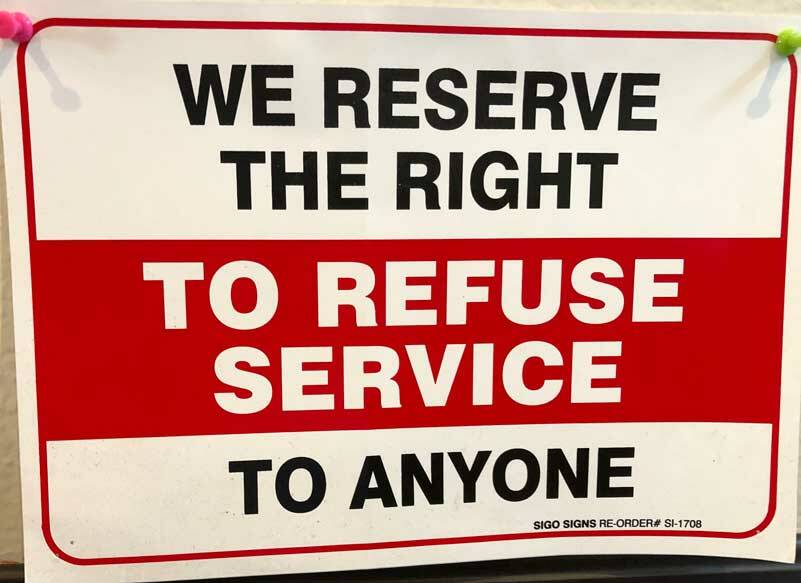By Morf Morford, Tacoma Daily Index
You’d think that the line between honesty and deception would be solid and clear. I’ve always associated truth with reality and falseness with fiction or unreality.
Maybe it has always been more complicated than I knew, but in the 2020s honesty, truth and trust seem like concepts, or even sets of assumptions from a far more innocent – or at least naive – age.
Whether it is “I’m fine” to “we appreciate your work and we value your effort, but we will have to get by without you for a few months” or “yes, that looks good on you” or “your call is very important to us”, we encounter, or repeat, something like lies all the time.
There are no facts, only interpretations. – Friedrich Nietzsche
When Nietzsche made that statement, it was a radical notion, one that conservatives, especially those with a religious leaning, objected to and publicly mocked and mercilessly attacked.
In the 2020s, however, even the seemingly relativistic Nietzsche was upstaged by the embracing (by conservatives, especially those with a religious leaning) of ‘alternative facts’ in every area from crowd sizes to election results to the size, nature and rotation of the earth.
In other words, those who, in previous generations had seen themselves as guardians of “ultimate truth claims,” in the 2020s saw themselves as the “ultimate” questioners, not only of facts, but of “truth” itself.
The whole idea of “doublespeak” is that two statements – often entirely contradictory – and made at once.One, of course, stands, even if unspoken, as true.
The common phrase “your call is very important to us” is a perfect example. As a recorded message, it is inherently misleading and false, but the bottom line is that the business or agency does in fact rely on our support and our “call” is, to some degree crucial to that organizations’s existence.
Membership?
How many organizations, for example, from warehouse stores to fitness places to non-profits or political parties plead with us to become “members”? A “member” literally means something attached, something that belongs. We are something like “friends” or family members” of those warehouse stores or agencies.
And they “care” about our calls.
Side effects
Anybody who has ever seen a drug advertisement on television or discussed the pros and cons of a medicine with a doctor can be forgiven for being confused.
Figuring out which drug fits which condition is difficult enough – but have you listened to the rushed side effects at the end of most adds?
One popular over-the-counter (OTC) drug warns about “Redness, swelling, loss of fingerprints, and pain”. Amnesia or forgetfulness, vertigo, mood disorders and weight gain are common side effects. Several drugs can lead to blue or green urine. Or even change the color of your eyes.
In short, try to confirm that any given medicine does more good than harm. It might be harder than you think.
Lying for a living
You might think of politicians as guilty of doublespeak and self-serving exaggerations, and they are, but so are advertisers. Companies might put out press releases broadcasting their intent of “reducing costs” or “improving productivity” which generally means layoffs, pay cuts and a loss of benefits for its workers.
Deception and euphemisms are a temptation for all of us. How often have you heard a term like “negative cash flow” instead of “spending more than you make” or “pre-emptive strike” instead of “unprovoked attack” or “between projects” in place of “unemployed”? Or even “nonperforming assets” to describe financial losses?
In short, doublespeak is language that deliberately obscures, disguises, distorts, or reverses the meaning of words. There is even recognition for such (mis)use of our language. The Doublespeak Award is an “ironic tribute to public speakers who have perpetuated language that is grossly deceptive, evasive, euphemistic, confusing, or self-centered.” It has been issued by the National Council of Teachers of English since 1974.
Incoherent and contradictory words seem to be everywhere, though they seem to cluster and multiply in habitats that nurture them – online comments and cable news in particular. Once you start paying attention, you can’t help noticing the language which makes the bad seem good, the negative seem positive and the unpleasant seem attractive, or at least tolerable. It is language which avoids, shifts or denies responsibility; or is at variance with its real or purported meaning. And perhaps most pervasively, it is language which conceals or prevents thought. It confirms instead of challenges our biases. It appeals to our lowest and laziest tendencies. One benchmark of double speak is its near universal attempt to convince that we, and our aspirations, are more important than other people and theirs.
The propagandist’s purpose is to make one set of people forget that certain other sets of people are human. – Aldous Huxley
The truth will indeed set us free, deception never will.






